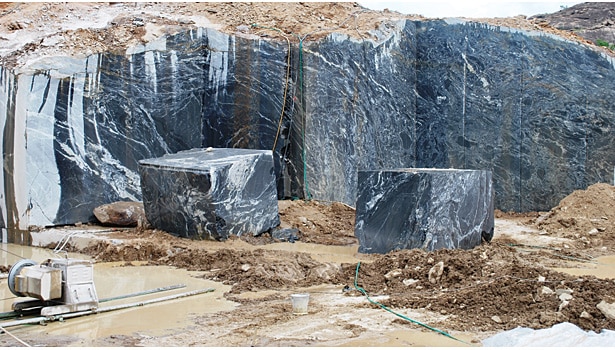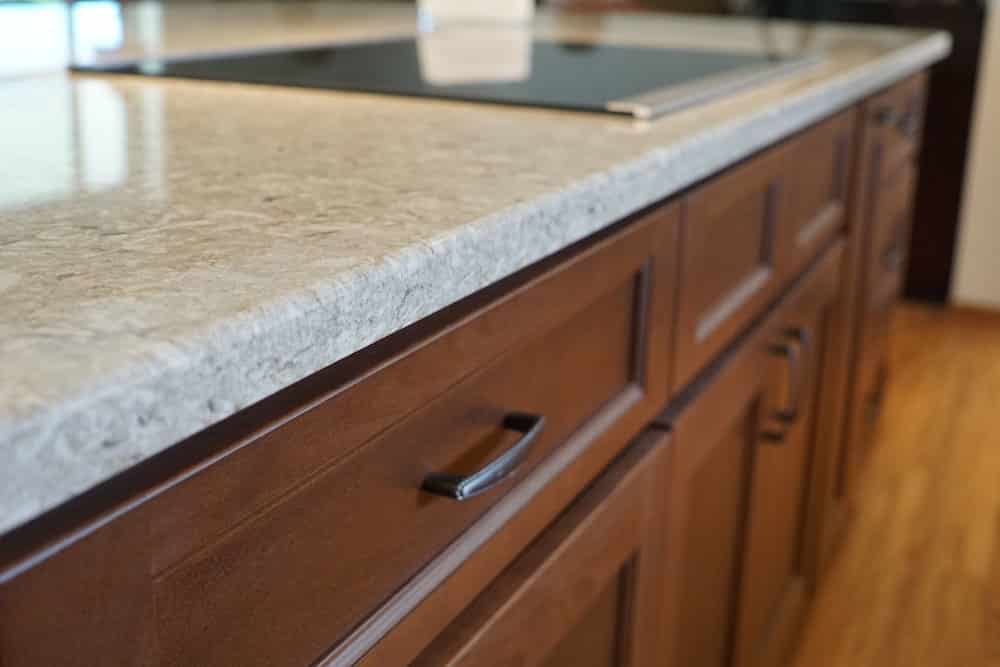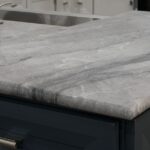
Quartz will usually be more expensive, going back and forth between 20% and 40% more expensive than granite. But this question is way more complicated than it seems at first glance.
There are several factors you need to consider for your project before choosing between quartz or granite and finding out which is more expensive. These factors include appearance, durability, maintenance and the environmental factor.
But before talking about these factors, let’s first discuss the price range of both materials and how you should properly decide between them.
Price Range and Comparison
Quartz and granite are amongst the best options you could choose from for a countertop. Both are worthwhile investments, but they are different types of investments in nature. Before asking which is more expensive, you should first consider what price actually means.
Quartz, as we said already, is approximately 20% more expensive than granite. The average cost of quartz ranges from $40 – $85 per square foot, depending on the aspects we are going to discuss later.
Granite however ranges from around $35 – $75 per square foot, but rare slabs of granite can be way more expensive, reaching up to $120 per square foot. So the top end of the granite is, actually, more expensive than quartz, but when comparing the average cost of both materials, quartz ends up being more expensive.
But the high cost of quartz is justified by the extremely easy maintenance and the virtual indestructibility of the material. The long term investment ends up becoming way more worthwhile than all the investment on maintenance and sealing you will eventually have to add on top of the cost of the granite.
So yes, while the quartz has an objectively higher price than granite at first glance, it will end up paying for itself in time. Let’s discuss all the aspects that influence this change in price between the two materials and the aspects you need to consider when choosing between one or the other.
Appearance
Appearance is very important. Countertops are usually the crown jewel of home decor. They need to be practical and beautiful at the same time, since they are always exposed. They need to compliment the decoration of the room they are put in, and sometimes that makes the choice of which material to pick for it very hard.
You’re going to look at you countertop everyday for a very long time, and a mild nuisance in its appearance now can become an unbearable problem as time goes by, so don’t underestimate the importance of the right choice when it comes to appearance.
Both granite and quartz come in a wild variety of colors and patterns. Granite, being a natural stone, is limited to the colors and patterns that nature can create naturally. Quartz, on the other hand, is a manufactured stone, so its colors and patterns can be tailor made to fit the design of your interior.
That is usually what skyrockets the price of the quartz in relation to granite. However, there are rare slabs of granite that can become more expensive than quartz. If you end up choosing the most common types of granite, quartz will certainly be more expensive.
Following the same idea, if you don’t plan to be particular about the choice of color and pattern of your quartz and end up choosing a cheaper, less personalized, option, these rarer granite slabs will surpass the price of the quartz.
Durability

Both granite and quartz are among the most durable options you can choose for your household surfaces. They are extremely hard stones that can last for years with proper care.
Granite is a mixture of several melted materials, making it unaffected by heat sources. The same cannot be said about quartz. If exposed to high temperatures, the resin used during its manufacturing can melt or warp, leaving a permanent damage on its surface.
Quartz, however, is virtually indestructible, at least in relation to the activities you can do day-to-day in a house. Granite is also very durable, but being a natural stone it can be chipped, especially on the edges.
If you plan to use these materials as kitchen countertop, there is one more thing we need to discuss: cutting things directly on top of it. As a rule of thumb, you should never do it, albeit for different reasons.
In the case of the granite, you will hardly damage it with a simple cutting knife. So much in fact that what happens is the exact opposite, the granite is the one who will end up damaging your knifes, making them dull. And even if you do end up damaging your granite countertop, it is much less visible and easily reparable.
Quartz is more prone to scratches, so always use a cutting board when working on it. It is also recommended to never scoop heavy things on its surface, as that can also cause scratches.
Maintenance
This is another aspect that ultimately influences in the high price of the quartz.
Quartz is extremely low maintenance. It is very easy to clean, very hard to stain and it has a very important characteristic that makes it worth the higher cost of the initial investment: it does not need to be sealed.
One of the steps in the process of manufacturing of the quartz includes it being mixed up with a potent resin. That makes its structure, essentially, non-porous. For that reason, quartz never needs to be sealed, which makes it a long term cheaper option.
But granite, being a natural stone, it is still porous, so it does need to be sealed. As durable as it is, in order to last for a lifetime, it needs to properly resealed from time to time. It also need to very well cleaned, since is not impervious to stain. The costs involved in resealing and the time invested in proper cleaning ends up not making worth your while paying less for it in advance.
Environment Impacts of Quartz and Granite
Quartz is composed of quartz crystals, resin and other types os natural stones. These natural stones used for its manufacturing are by-products of the mining process of que quartz itself, so there’s no additional quarries used to gather additional stone. In fact, quartz can even be recyclable.
The mining of the granite however does impact the environment. It is a very small impact, compared to the gathering of sustainable wood. It also can be down-cycled for other purposes.
Quartz Or Granite: Final Considerations

As you could see, there are a lot of variables involved in choosing between quartz and granite, specially for your countertop. It really depends on your personal taste in color and pattern, the way in which your countertop will be used and if you want to consider a long term investment or not.
Quartz is more expensive due to its easy maintenance, high resistance and the fact that it does not need to be sealed. Granite is also very resistance, but it does need to be properly cleaned and you will also spend more in the resealing process, which is a must if you want to make it last.
All things considered, despite being more expensive initially, quartz ends up paying for itself in time.
But if you’re still not sure about which option to choose from, you can always get the help of a professional. Explain your project and your needs and they will be able to help you make the best possible choice.
If you’re in the Sarasota area, Eagle Stones is your best choice. They have the largest indoor selection of stone slabs in the area and their highly skilled professionals are always ready to help you.
Give them a call right now at +1 941-227-2000 or schedule a visit.



